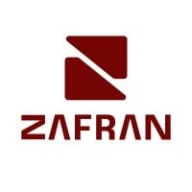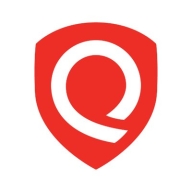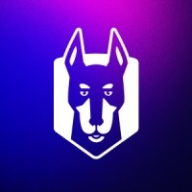


Snyk and Qualys TotalCloud are both prominent players in the vulnerability management and cloud security domain. While Snyk excels in simplicity and developer-friendly integrations, Qualys TotalCloud offers comprehensive cloud infrastructure management. Based on feature diversity and depth, Qualys TotalCloud seems to hold an advantage, especially for larger organizations.
Features: Snyk is appreciated for its ease of use, with rich integrations across developer tools and a precise vulnerability database. It enables developers to manage security issues independently with actionable insights. However, its on-premises installation can be costly. Qualys TotalCloud provides extensive features like cloud security posture management, automation, and comprehensive dashboards with FlexScan simplifying data collection and scans. Its proactive approach to risk management is ideal for larger organizations.
Room for Improvement: Snyk could enhance its language support, add static analysis capabilities, and improve notification granularity. Users also seek better integration options and refined license compliance features. Qualys TotalCloud needs to improve scanning capabilities for niche devices and IP domains. Enhancements in report generation relevant to compliance needs and clearer dashboard navigation guidance are advised.
Ease of Deployment and Customer Service: Snyk is well-regarded for its supportive customer service, facilitated through platforms like Slack, offering responsive technical support for developers. It boasts adaptability in cloud and on-premises environments but faces challenges in rapid onboarding. Qualys TotalCloud supports a wide assortment of cloud environments despite complexity in deployment and an initial steep learning curve, yet provides solid technical support.
Pricing and ROI: Snyk offers competitive pricing with a focus on developer-friendly scalability, although perceived as expensive by some users. The pricing model's sophistication includes non-coding contributors, delivering a high ROI by reducing vulnerability resolution time. Qualys TotalCloud positions itself as a premium-priced solution delivering a robust feature set. Its pricing remains competitive but varies with organizational scale, potentially seen as high.
| Product | Market Share (%) |
|---|---|
| Qualys TotalCloud | 1.0% |
| Snyk | 2.6% |
| Zafran Security | 1.1% |
| Other | 95.3% |

| Company Size | Count |
|---|---|
| Small Business | 8 |
| Midsize Enterprise | 2 |
| Large Enterprise | 23 |
| Company Size | Count |
|---|---|
| Small Business | 21 |
| Midsize Enterprise | 9 |
| Large Enterprise | 21 |
Zafran Security integrates with existing security tools to identify and mitigate vulnerabilities effectively, proving that most critical vulnerabilities are not exploitable, optimizing threat management.
Zafran Security introduces an innovative operating model for managing security threats and vulnerabilities. By leveraging the threat exposure management platform, it pinpoints and prioritizes exploitable vulnerabilities, reducing risk through immediate remediation. This platform enhances your hybrid cloud security by normalizing vulnerability signals and integrating specific IT context data, such as CVE runtime presence and internet asset reachability, into its analysis. No longer reliant on patch windows, Zafran Security allows you to manage risks actively.
What are the key features of Zafran Security?
What benefits can users expect from Zafran Security?
In industries where security is paramount, such as finance and healthcare, Zafran Security provides invaluable protection by ensuring that only exploitable vulnerabilities are addressed. It allows entities to maintain robust security measures while allocating resources efficiently, fitting seamlessly into existing security strategies.
TotalCloud is the Qualys approach to Cloud Native Application Protection Platform (CNAPP) for cloud infrastructure and SaaS environments. With TotalCloud, customers extend TruRisk insights (transparent cyber risk scoring methodology) from the Qualys Enterprise TruRisk Platform to their cloud environments allowing for a seamless unified view of cyber risk across on-prem, hybrid, and multi-cloud environments.
Features and capabilities of Qualys TotalCloud include, but are not limited to:
Discover: Complete visibility and insights into cyber-risk exposure across multi-cloud. Continuously discover and monitor all your workloads across a multi-cloud environment for a 360-degree view of your cloud footprint. Identify known and previously unknown internet-facing assets for 100% visibility and tracking of risks.
Assess: Comprehensive cloud-native assessments with FlexScanTM. Extensive scanning capabilities with Qualys FlexScan, including no-touch, agentless, API- and snapshot-based scanning, along with agent- and network-based scanning for in-depth assessment. Use these multiple scanning methods to scan a workload to get a unified and comprehensive view of vulnerabilities and misconfigurations.
Prioritize: Unified security view to prioritize cloud risk with TruRiskTM. Experience a unified risk-based view of cloud security with insights across workloads, services, and resources. Qualys TruRisk quantifies security risk by workload criticality and vulnerabilities; it correlates with ransomware, malware, and exploitation threat intelligence to prioritize, trace, and reduce risk.
Defend: Real-time protection against evolving and unknown threats with InstaProtectTM. Qualys enables continuous monitoring of all cloud assets to ensure they are protected against threats and attacks at runtime. Qualys keeps your cloud runtime safe by detecting known and unknown threats across the entire kill chain in near real-time across a multi-cloud environment.
Remediate: Fast remediation with QFlow – no code, drag-and-drop workflows. The integration of QFlow technology into Qualys TotalCloud saves security and DevOps teams valuable time and resources. Automation and no-code, drag-and-drop workflows help simplify the time-consuming operational tasks of assessing vulnerabilities on ephemeral cloud assets, alerting on high-priority threats, remediating misconfigurations, and quarantining high-risk assets.
Snyk excels in integrating security within the development lifecycle, providing teams with an AI Trust Platform that combines speed with security efficiency, ensuring robust AI application development.
Snyk empowers developers with AI-ready engines offering broad coverage, accuracy, and speed essential for modern development. With AI-powered visibility and security, Snyk allows proactive threat prevention and swift threat remediation. The platform supports shifts toward LLM engineering and AI code analysis, enhancing security and development productivity. Snyk collaborates with GenAI coding assistants for improved productivity and AI application threat management. Platform extensibility supports evolving standards with API access and native integrations, ensuring comprehensive and seamless security embedding in development tools.
What are Snyk's standout features?Industries leverage Snyk for security in CI/CD pipelines by automating checks for dependency vulnerabilities and managing open-source licenses. Its Docker and Kubernetes scanning capabilities enhance container security, supporting a proactive security approach. Integrations with platforms like GitHub and Azure DevOps optimize implementation across diverse software environments.
We monitor all Vulnerability Management reviews to prevent fraudulent reviews and keep review quality high. We do not post reviews by company employees or direct competitors. We validate each review for authenticity via cross-reference with LinkedIn, and personal follow-up with the reviewer when necessary.